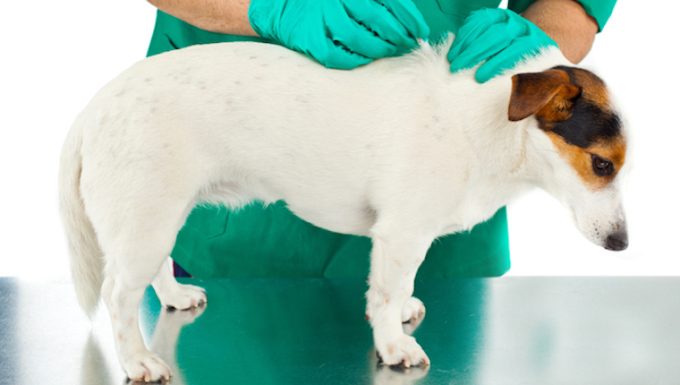Haemobartonellosis in dogs is a type of parasitic blood infection. Technically, the parasites that cause the condition are called M. haemocanis.
Usually, the condition is caused by infected fleas or ticks who transmit the parasite to dogs. The condition can cause pneumonia and urinary tract infections.
Technically, the condition is also known as hemotrophic mycoplasmosis in dogs.
If you see the signs of the condition in your dog, then get to a veterinarian for a proper diagnosis and treatment.
Here’s what you should know about the symptoms, causes, and treatments for the condition.
Symptoms of Haemobartonellosis in Dogs
The condition produces a small range of symptoms. For instance, some of the most common symptoms include:
- Gums turning pale purple
- Loss of appetite
- Infertility
- Fever
- Lethargy
- Depression
- Loss of weight
Causes of Haemobartonellosis in Dogs

The cause of the condition is usually fleas or ticks who are infected with the parasite. These fleas and ticks can pass the condition on to a dog.
Additionally, the following situations can also cause the condition:
- Blood transfusion
- Fighting with another infected dog or animal
Treatments for Haemobartonellosis in Dogs
Firstly, your vet will ask about your dog’s symptoms. Secondly, your vet will ask about any recent circumstances where your dog could have picked up the condition.
Thirdly, your vet will carry out a full physical examination. Blood and urine tests will be taken. Additionally, a polymerase chain reaction (PCR) test can confirm the condition.
Generally, antibiotics are used to treat the condition if it is diagnosed early. As always, if your vet prescribes your dog any medicine, make sure to stick to the correct dose and frequency instructions. Also, complete the full course of medicine.
However, in more severe cases, your dog may need to be hospitalized. This is to undergo fluid therapy and maybe a blood transfusion.
Unfortunately, even dogs who recover from the condition can still technically pass the condition on to other dogs.
Ultimately, prevention is better than cure with this condition. You can read more about general flea and tick precautions and medications here.
Have you ever cared for a dog who suffered from this condition? How did your vet help your dog recover? Let us know in the comments section below.









